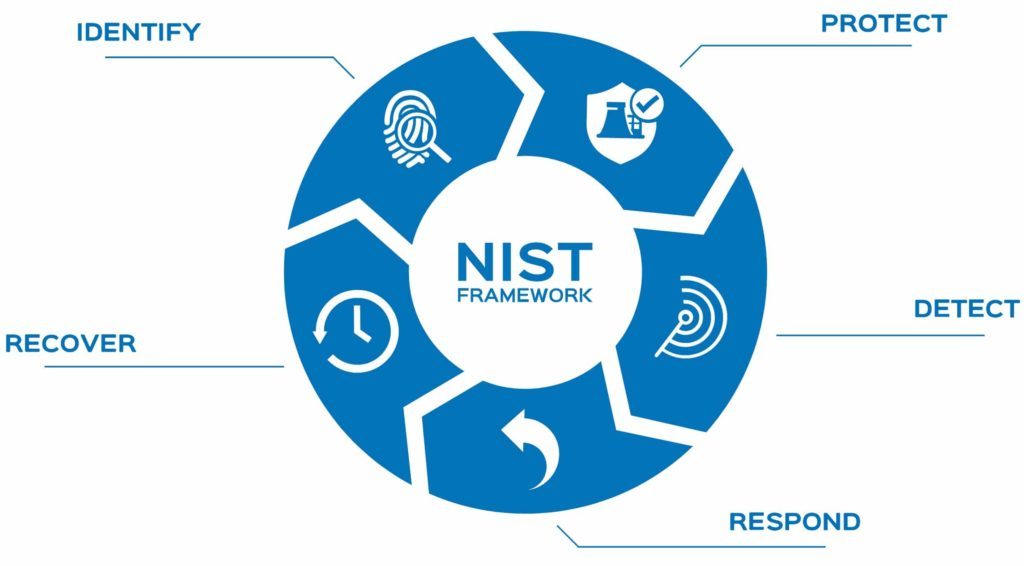What is NIST Compliance?
Compliance with one or more NIST standards is referred to as NIST compliance. The US Department of Commerce's NIST (National Institute of Standards and Technology) is a non-regulatory agency. Its principal function is to create industry-specific standards (especially for security controls).
The National Institute of Standards and Technology (NIST) develops standards based on best practices. That is why the government has advised businesses and organizations to employ them. The NIST Cybersecurity Framework (CSF), which is used to assess cybersecurity threats, is the most commonly adopted of NIST's standards and guidelines. NIST 800-171 and NIST 800-53 are two other standards that deal with unclassified data.
The primary goal of this framework is to assist businesses and organizations in better managing and reducing cybersecurity risk by implementing recognized standards and industry best practices. Some of the advantages of using the NIST Cyber Security Framework are listed below.
1. Enhance Long-Term Cybersecurity Risk Management
The NIST framework replaces the 'one-size-fits-all' approach to security compliance with a responsive and adaptable approach. Given the dangers that firms face today, a long-term strategy of continual compliance is essential. While this may appear to be a difficult task, the NIST allows for a continual compliance method.
The framework will lead your company through all of the critical decision points along the way to risk management success. It also allows for seamless risk management communications throughout the company.
2. Fosters Trust Among Business Partners, Clients, and Stakeholders
Organizations that can demonstrate a faultless cybersecurity posture can win more sales in business to business transactions. Customers, partners, and vendors are frequently concerned about your security risk.
The NIST Cyber Security Framework is now widely regarded as the "gold standard" for cybersecurity protection. As a result, demonstrating that you strictly adhere to the NIST Framework will earn you the trust of your business partners and clients. As a result, regardless of the looming cyber threats, your company will continue to develop
3. Bridging the Communication Gap Between Technical and Non-Technical Stakeholders
The NIST Framework is built on a risk-based approach, which business leaders are fully aware of. As a result, it promotes an integrated cybersecurity risk management strategy that is in line with your business objectives.
As a result, your company's communication and decision-making are improved. Adopting the NIST also promotes common security understanding among technical and business stakeholders, allowing for better communication across your firm.
It encourages all departments to collaborate to guarantee that the risk management objectives are completed on schedule. Most significantly, when all departments and staff are aware of the threats and work together, you will have a company that is constantly focused on maintaining a strong security posture.
4. A Flexible Framework for Any Organization
Because of its risk-based and outcome-driven approach, the NIST CSF is the most adaptable cybersecurity framework. Companies in the energy, finance and transportation industries have all used the framework. It can be adjusted to fit varied business needs because it is a voluntary structure. The Core Functions and Implementation Tiers make it simple to understand, which contributes to its rapid adoption.
Although the NIST framework was created with the Critical Infrastructure industry in mind, it is adaptable and can be utilized by any company in any industry. Because the NIST Framework is outcome-driven, it does not specify how your company must achieve the intended results, allowing for more scalability.
5. Designed With Future Regulations and Compliance Requirements in Mind
The NIST Framework puts organizations and businesses in a better position to stay compliant as rules change. The compliance bar is continually being raised, and this trend is expected to continue across all businesses.
The growth in regulatory compliance requirements across companies and across regions is causing tremendous anxiety among CISOs and most security leaders. The NIST framework, on the other hand, is one of the most solid foundations for building a cybersecurity program and preparing for future standards and laws.
While implementing the NIST CSF or striving for NIST compliance is advantageous, it might be difficult for newcomers and unskilled users. It even provides a problem for small businesses, which are frequently short on competent employees. For small to medium organizations, Northstar Technology Services offers a suite of Cyber Safety products for risk mitigation and compliance. To learn more about how NorthStar may help your firm maintain a strong security posture, contact us.



